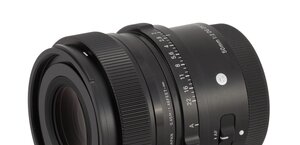Fujifilm Fujinon XF 16 mm f/1.4 R WR
6. Distortion
We decided to check how it looks in practice, for both file formats. In order to do so we took a photo of the starry sky and we transformed the pixel layout (X,Y) into the equatorial coordinate system (right ascension and declination) which locates a star on a celestial sphere. That way we could determine the field of view of the lens very precisely. In the case of JPEG files it amounted to 81.3 degrees and in the case of RAW files – to 81.9 degrees, with the measurement error never exceeding a value of 0.1 of a degree.
The first piece of news is good – you cannot talk about any significant cropping of the field of view because its size in RAW files differs from that in JPEGs by just 0.6 of a degree. The second piece of news is a bit worse. At 16 mm focal length you were supposed to have a field as big as 83.1, assuming the APS-C/DX detector size (1.5 multiple) and rectilinear mapping. In the case of the Fujinon 1.4/16 it is by 1.2 degrees narrower. The difference is not big, within the 1-2% margin of error allowed officially by the producer, but it’s a pity we don’t benefit from it; I admit I wouldn’t be angry at all if the field of view was by one degree larger instead of being narrower.
Please Support UsIf you enjoy our reviews and articles, and you want us to continue our work please, support our website by donating through PayPal. The funds are going to be used for paying our editorial team, renting servers, and equipping our testing studio; only that way we will be able to continue providing you interesting content for free. |
- - - - - - - - - - - - - - - - - - - - - - - - - - - - - - - - - - - - - - - - - - - - - - - -
The producer had to state a focal length value on the casing and, in reality, it is far closer to 16 mm than to 17 mm; if it was 17 mm the field of view would have to amount to 79.7 degrees. There are no serious reasons to complain.
Especially that you shouldn’t complain about the distortion either. In JPEG files it was of barrel variety, amounting to -0.86%. After passing to RAW files its value practically didn’t change at all – the official result we got is −0.87% so, within the margin of error, the same as for the JPEG format.
It is an excellent result to boot. The Sigma 1.4/24, so praised by us, with a very similar angle of view on full frame, had distortion of −1.20%, and the Nikkor’s AF-S 1.4/24 distortion was as high as −2.03%. Also the Samyang 16 mm f/2.0 ED AS UMC CS , designer for APS-C/DX sensors, fared much worse as its deformations amounted to a high level of −2.53%. A round of applause for the Fujinon!
| Fujifilm X-E1, JPEG | |||

|
|||
| Fujifilm X-E1, RAW | |||

|
|||






